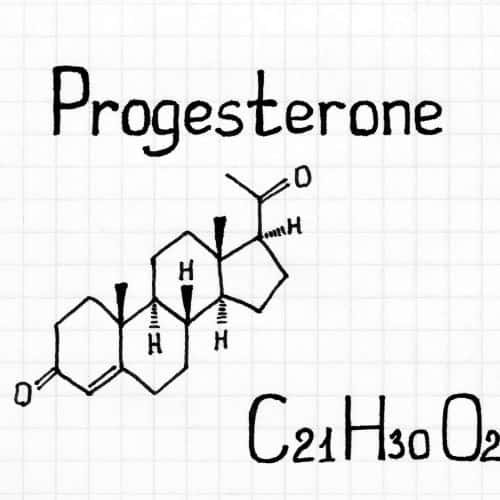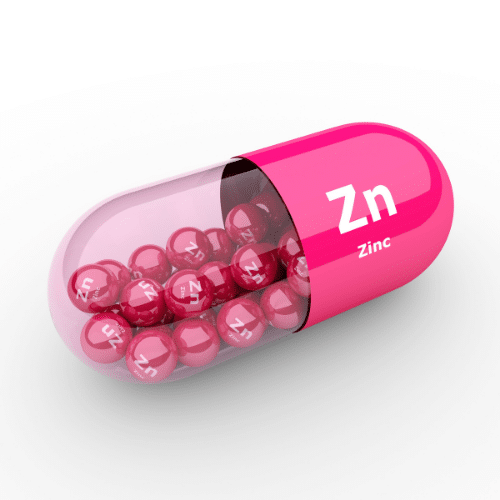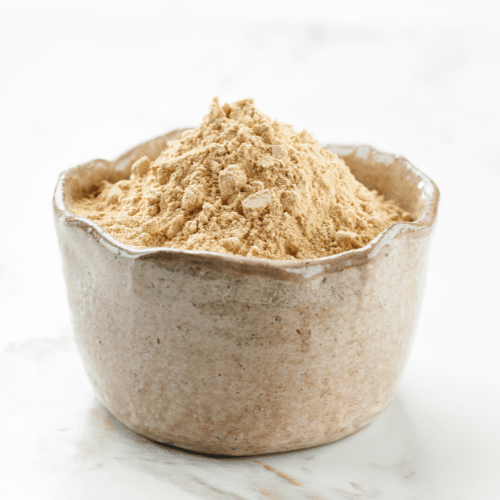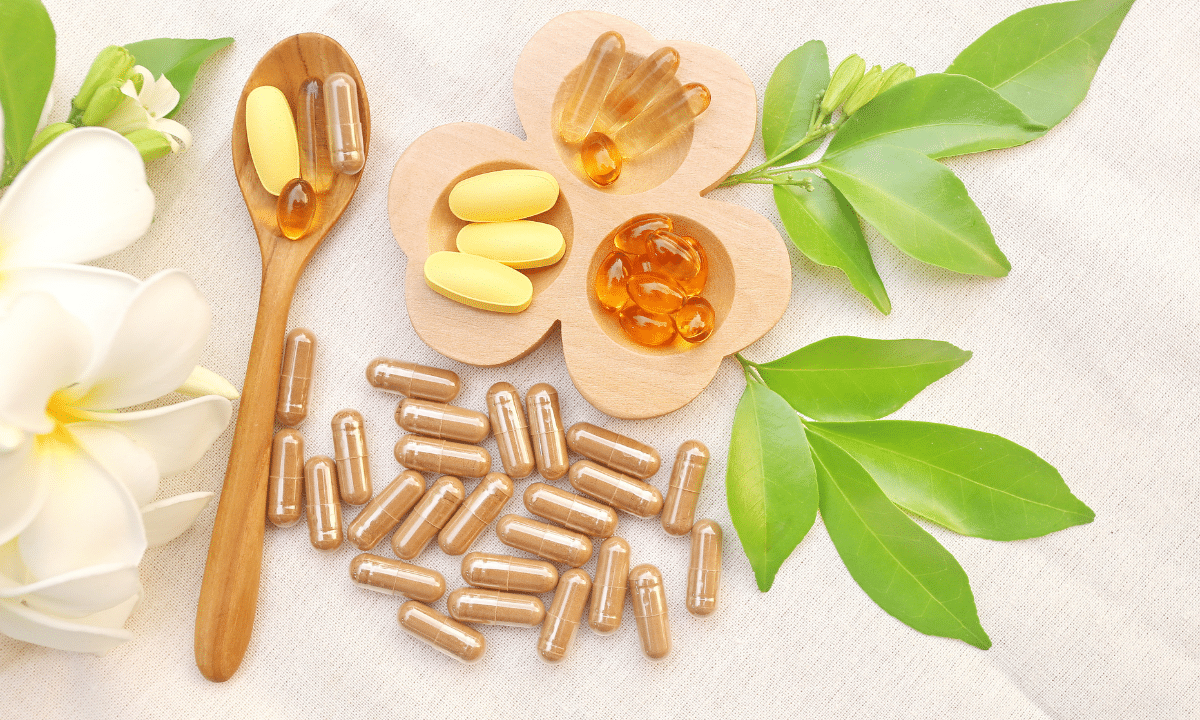Supplements to Balance Hormones in Menopause
Menopause can feel like a world-shaking time in a woman’s life. It’s not uncommon for women to experience a wide range of unpleasant symptoms that are often challenging to manage.
Table of Contents
ToggleThis is due to the imbalance of hormones that naturally come with menopause. Supplements are an excellent way to minimize this imbalance of hormones naturally.
Menopause Hormone Imbalance
Before digging deep into how to minimize the symptoms, let’s understand what happens with women’s hormones during the menopause transition.
Estrogen
As estrogen decreases, it affects other hormones in ways that cause a variety of symptoms.
During the transition to menopause, estrogen and progesterone begin to fluctuate. Estrogen levels can go lower or higher than usual. In fact, estrogen dominance is common.
These continual changes in estrogen affect the regulation of other hormones.
Cortisol
Before perimenopause, estrogen levels help to regulate the production of the stress hormone cortisol. With the decline of estrogen during the years leading to menopause, the body produces more cortisol, particularly during periods of high stress.
The increase of cortisol leads to many of the problems we recognize as symptoms of menopause, such as weight gain, difficulty sleeping, and brain fog.
These hormone changes can also cause mood swings, irritability, anxiety, sadness, and anger more than before perimenopause.
Progesterone

Another hormone changes through the perimenopausal and menopausal years.
Healthy progesterone levels support the thyroid, which produces hormones that regulate your metabolism.
When progesterone fluctuates during the transition to menopause, symptoms like hair loss, thinning skin, and weight gain may occur.
Symptoms of Hormonal Imbalance
Because hormones regulate how all your body systems function, an imbalance can result in many different symptoms, including
- Sleeping difficulties
- Weight gain or loss
- Changes in hunger and appetite
- Hot flashes
- Headaches
- Anxiety
- Depression
- Hormonal acne
- Hair loss
- Fatigue
Other Contributors to Hormone Imbalance
- Chronic stress
- Insulin resistance
- Diet
- Gut issues
- Overweight and obesity
- Inflammation related to diet and lifestyle
- Toxicity levels in the body
- PCOS
- Menstrual cycles
- Pregnancy
- Disorders affecting the thyroid, adrenal glands, and pituitary gland.
Supplements to Balance Hormones
The imbalance of hormones during perimenopause and menopause can be alleviated with supplements. Types to consider include minerals, vitamins, probiotics, and omega-3.
Minerals for Hormone Imbalance
Zinc
Zinc supports many essential functions in the body. Zinc’s role in regulating hormone release and reproduction can help boost the levels of hormones, e.g., progesterone.
Also, because zinc is involved in stress response, it can help to stabilize cortisol levels.

That being said, zinc can be depleted by prolonged periods of high stress. For that reason, a zinc supplement might become necessary to balance cortisol levels.
Magnesium
This mineral is important during perimenopause because it helps to reduce the body’s stress response, positively affecting many unpleasant symptoms.
Magnesium supplements have been successfully used to help manage hot flashes, digestive issues, sleep problems, and other common symptoms of menopause.
Other roles of magnesium in the body include reducing inflammation, regulating blood sugar, keeping bones strong, promoting a healthy heart rate, decreasing anxiety, and easing depression.
Vitamins for Hormonal Imbalance
Vitamins are essential for the efficient functioning of hormones.
Vitamin D

The sunshine vitamin.
Vitamin D helps regulate adrenaline, dopamine, and serotonin production. Thus, deficiency can create or worsen a hormone imbalance.
Symptoms of vitamin D deficiency include anxiety, depression, and mood swings.
B Complex
Vitamins B (thiamin, riboflavin, niacin, pantothenic acid, B6, biotin, folate, and B12) play an important role in health and well-being. As the building blocks of a healthy body, B vitamins directly impact your energy levels, brain function, and cell metabolism.
In menopause, vitamin B is recommended for women who don’t have a balanced diet due to their changing appetite or eating habits.
Supplements are also necessary for women who had certain types of surgery that cause them to lose some nutrients from their stomach or intestines.
Vitamin C
Beyond the well-known function of protecting the immune system, vitamin C also plays a role in stress management.
In addition, the antioxidants in vitamin C can also slow down the aging process by protecting cells from oxidative damage caused by environmental toxins (air pollution) and other factors.
Moreover, the role of vitamin C is significant in protecting the body against oxidative stress during menopause when there’s a drop in estrogen production.
It also plays a key role in preventing losses of mental abilities associated with menopause.
Probiotics

Gas, bloating, belching, constipation, and abdominal discomfort are some of the many stomach issues that menopausal women face.
This happens because the changes in estrogen and progesterone levels in the years leading up to menopause can alter digestion.
As mentioned earlier, estrogen plays a role in balancing cortisol levels, the stress hormone. When too much cortisol is available, the body increases the amount of glucose in the blood to respond to a flight or fight situation. It also halts other systems in the body, such as the GI.
Additionally, too little progesterone can also decrease GI motility, another cause of constipation.
Probiotic supplements support the GI system by increasing healthy bacteria populations in the gut. This helps balance hormones and reduce stress levels.
Omega-3 Fatty Acids
Omega-3 is one of the healthiest fats and is found in fish, olive oil, avocado, ghee, nuts, and seeds.
It can help manage the hormones related to insulin resistance and might also reduce menopause-related anxiety and night sweats.
Adaptogenic Herbs for Hormone Balance

These herbs have been used for centuries throughout Asia to combat the adverse effects of aging, including poor concentration, irritability, anxiety, fatigue, and depression.
Adaptogen herbs are safe for most people. However, they should not be consumed by pregnant women or anyone diagnosed with an autoimmune disorder such as lupus.
Ashwagandha
The benefits of ashwagandha in menopause include increased energy and reduced stress, anxiety, and mood swings.
Stress reduction might be because this ancient herb is believed to reduce cortisol levels.
Black Cohosh Root
This root has been used in Germany since the 1940s and might help relieve menopausal symptoms by increasing estrogen levels in the body.
In many studies, supplements containing black cohosh root have been shown to be effective for helping with hot flashes, night sweats, and vaginal dryness.
However, the evidence of the effectiveness is non-conclusive enough for reputable associations to endorse the use of black cohosh root.
Side Effects
While there are not many adverse side effects reported with the use of black cohosh root, there are established cases of liver damage.
Maca

Traditionally used in Peru, maca root is an adaptogen containing natural estrogen. Maca can help to reduce anxiety and depression, balance hormones and boost libido.
The effects of maca on menopause relief appear to be through the modulation of antioxidant enzymes.
Maca root is also a good source of vitamin C, B1, and B2.
Licorice Root
Licorice root has been shown to be a safe and effective alternative treatment for menopause by decreasing the frequency and severity of hot flashes.
Holy Basil
Holy basil is an Indian herb that has been traditionally used for a wide variety of health problems.
Among many other benefits, holy basil—or tulsi—helps to manage cortisol levels, reducing stress and anxiety.
The Bottom Line
The hormones in your body can be a delicate balance, and when you get to perimenopause, it seems like their normal function is disrupted.
Supplements can significantly improve the unwelcome symptoms of perimenopause and menopause by helping balance your hormones.
However, nothing can replace healthy eating and a healthy lifestyle. Hormones are largely balanced by regular exercise, proper hydration, good sleep, and improved mental health.

Dr. Su-Nui Escobar, a Registered Dietitian/Nutritionist in Miami, FL, is dedicated to empowering women in perimenopause and menopause to live healthier, more satisfying lives.
With a doctorate in clinical nutrition from the University of North Florida, she has expertise in menopause and weight loss, including the unique challenges faced by those on weight loss medications.
Su-Nui’s passion for her field is evident in her previous role as the Academy of Nutrition and Dietetics spokesperson.


